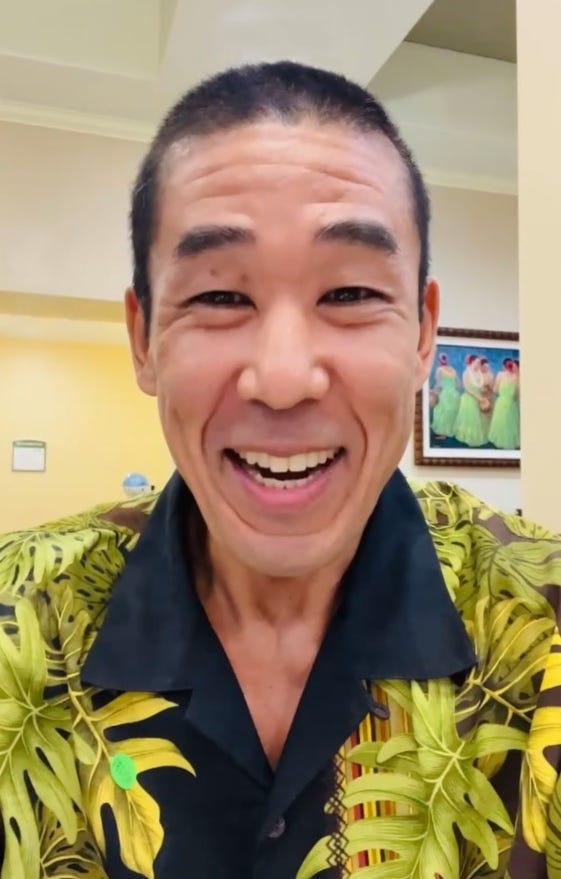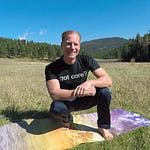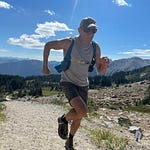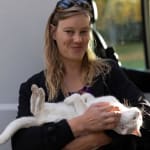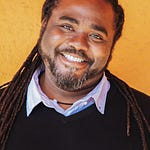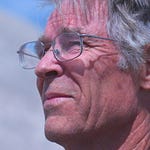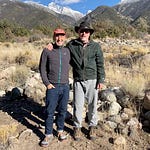This conversation is part of a series of interviews with various brothers and teachers, including many fellow writers, all of which are part of the body of work surrounding my book-length memoir An Ordinary Disaster—one man's proof that we can all learn to listen to ourselves, and to act upon the inner voice of our self, our sanity and our soul.
Today I'm talking with Bill Maeda, a very humbly self-described "54-year old married dad," a lifelong athlete and personal trainer, and, more recently, something of an accidental TikTok star. Although Bill has been into fitness and physical training since he was a teenager, his journey to finding his strength again in middle-age after a bout with cancer and depression is particularly inspirational—and that, along with his warm, open, direct, very strong—and very funny presence is what's led so many people to connect with him on social media. I reached out to Bill out of the blue as someone that I saw embodying positive presence, and he very generously accepted because he appreciated my invitation and wanted to be part of the mission of what I'm doing with the show.
As you listen, you might scan the questions at the bottom of the show notes, or consider this: what is your relationship with your own body and your physicality, and how does your body, your strength, and your physical wellness relate to your identity and your mental health?
Show Notes
Getting into trouble at an early age—and early signs of his physicality being very active. He didn’t want to be a “jock,” but he did start lifting weights, and despite also taking up smoking cannabis at the same time, he showed a strong affinity for weightlifting.
As his fellow high school students started to take notice, he began to teach and train them, and was soon invited back into the gym at the private school that he had had to leave just a couple of years prior due to bad grades.
Becoming his current self—fairly recently. Colon cancer in 2012, long recovery and slide into depression. He had an “arrogant delusion” that “cancer doesn't happen to me,” and had a serious and very humbling struggle to recover his physicality that resulted in a dive in to depression.
Looking back, he sees the roots of his depression in a childhood “shielded from challenge and adversity,” and that he “didn't know what it was like to overcome hardship” until he got cancer. That hardship, and the isolation and repetition of working solo with clients led him to feel alone and a lack of “texture” in his life.
Being challenged by one of his clients to start posting on YouTube brought him into contact with people all over the world, which helped him to realize how much he needed connection and “unpredictable interactions” to feel normal and good.
Bill talks about self awareness and having a “strong moral compass,” that has roots in seeing his dad’s willingness to apologize and another mentor’s focus on finding win-win solutions, and grew into an inclination towards kindness and patience, both of which have been reinforced by his experience as a father.
We talk about what he calls “violent expression” as something that humans have and need to express, for self-defense, and as an objective for physical training. We need to express this “potential energy,” otherwise it will back up in the system, just like any other shadow.
We talk about his journey to fatherhood, and how he always knew that he was going to be a father, but didn’t want to be one until he “calmed down” enough. Now he has two daughters. Even so, at first he didn’t see his first daughter as a ‘person,’ until she told him to “dip it” one day when he was eating tough bread with a bowl of soup. This moment was a paradigm shift and he sees that as “the day where I became a dad.”
I asked Bill what he’s afraid of, and he expressed his concern for the lack of connection and engagement so many of us are seeing and feeling, in part due to how pervasive social media and other technology is these days. He’s doing his part to help people be active and connect with each other—and imagines that it may require something like the Bai Lan phenomenon that’s currently happening in China to shake us up.
You can connect with Bill on TikTok, Instagram, and YouTube.
New here? Please make sure that you’re signed up!
Dig this? Please share with someone else who will too.
Further reading
You might enjoy some of my other writing on the subjects of depression, fatherhood, connection, and physicality, in particular The Man Pays and Freedom at all Costs.
…I’ve got some questions for you…
If you have experienced depression, what is it like? Have you been able to identify any root causes or contributing factors?
What do you think about what Bill calls “violent expression”? Is this something that you ever feel or have the opportunity to express?
What is your relationship with your own body and your physicality—and how does your body, your strength and your physical wellness relate to your identity as a person, and to your mental health?
Where is your own moral compass pointing? What the values that you hold close and seek to embody?
What keeps you on your toes?



